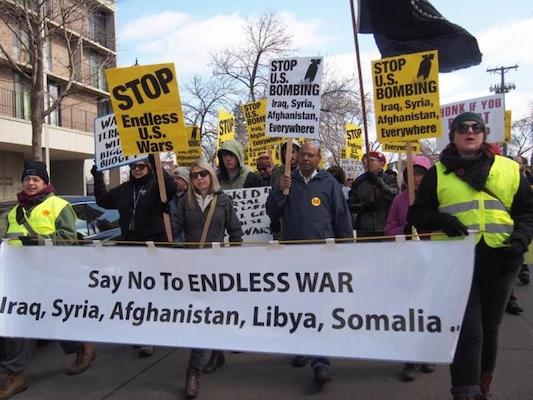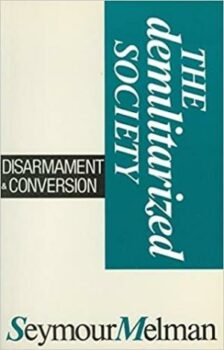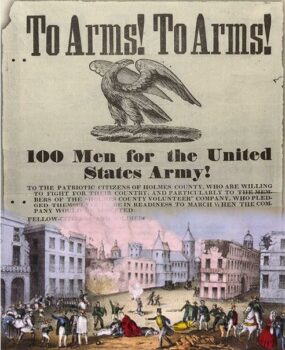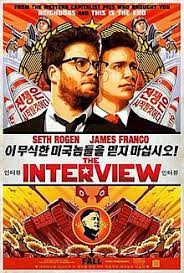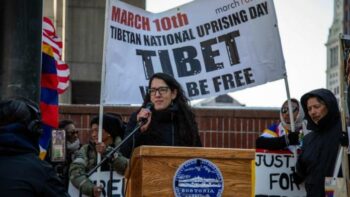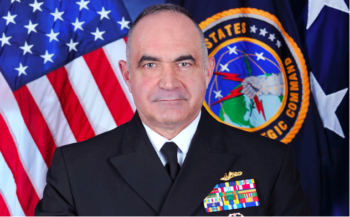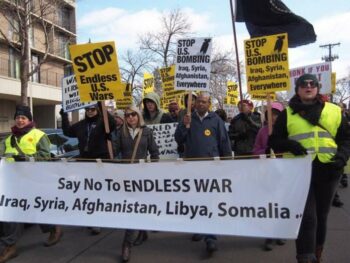Since the Vietnam War, the U.S. antiwar movement has experienced some high points—notably the massive protests that took place on the eve of the 2003 Iraq War—but has largely been ineffective in challenging the U.S. warfare state.
The main reason is because the U.S. government has been able to effectively distance the public from the “forever wars” by relying overwhelmingly on mercenaries and machines (i.e., drones and other fancy gadgetry) to carry them out.
With no personal stake in the fighting, most Americans have tuned out and gone on with their lives. According to an Associated Press poll, only 12 percent of Americans said that they closely followed news related to the U.S. presence in Afghanistan.
This war—the longest in American history—was waged for twenty years with practically no organized protests, even though it was blatantly illegal, fueled enormous corruption, has been a strategic disaster, and has destroyed Afghanistan’s social fabric in a manner not too different from Vietnam.
With the War on Terror having lost a lot of its legitimacy, the U.S. ruling class is now returning its attention to “great power rivalry” with Russia and China, provoking each country with dangerous military buildups on its border and even threatening nuclear war.
Admiral Charles J. Richard, head of the U.S. Strategic Command, recently called on the nation’s military and civilian leaders to seek new ways to face threats by Russia and China, including the “real possibility” of “nuclear conflict.”
Daniel Ellsberg, a former Pentagon employee who gained fame for leaking the Pentagon Papers exposing U.S. government deceit in the Vietnam War, told journalist Amy Goodman that Richard appeared to be “criminally insane.”
But where is the outcry and street protest against the criminal insanity? It is largely absent.
The U.S. left has been fixated for years now on issues of racial identity and gender politics and police brutality, but largely failed to consider the latter as partly a consequence of imperial blowback—many U.S. killer cops either served in the military, are armed with military-style weaponry, or have trained as soldiers to regard civilian suspects as the enemy.
The time is now ripe for the revival of a strong antiwar movement in the United States that will criticize both the Democratic and Republican Parties and should be anti-imperialist.
That is it should demand the U.S. return to its republican roots and dismantle its empire of hundreds of overseas military bases and quest for global dominance, which threatens to unleash a nuclear holocaust.
CAM hereby offers its readers six principles that a resurgent U.S. antiwar movement should follow, with attention to how they can best stand up to milk-toast liberals who would want to smear them as being in league with official U.S. enemies (”Putin” or “Assad lovers” as the refrain goes).
1. Focus Dissent against the U.S. Government’s Crimes, Not U.S. Enemies
The ruling class has long attempted to co-opt liberal concern for human rights by casting attention on the crimes of U.S. government enemies—real or imagined. Falling hook, line and sinker for the bait, leftist activists have too often channeled valuable activist energies into campaigns that actually enhance U.S. imperial objectives.
We are thinking about the “Free Tibet movement,” the “Save Darfur movement,” the anti-Putin campaign and current fixation with China’s alleged genocide in Xinjiang. In each of these cases, the U.S. aimed to either destabilize or overthrow the government accused of human rights violations in order to advance U.S. power or access raw materials. The activist movements, in turn, were largely creations of the Central Intelligence Agency (CIA).
2. Put Your Own House in Order
A major feature of the U.S. empire is its cloaking its escapades in the rhetoric of humanitarian uplift and advancement.
With missionary-like zeal, American imperialists dedicate themselves, at least in their own minds, to bringing human rights and democracy to the benighted lands of the earth in an updating of Rudyard Kipling’s “White Man’s Burden.”
We in the antiwar movement need to reiterate that the United States itself is far from a beacon of democracy or humanity with its money-saturated political structure, oppressive prison system, vast inequality levels and huge homeless population.
Here are some major injustices at home that sincere human rights activists ought to try to reverse rather than trying to find new countries to bomb to advance “women’s rights.”
- The United States is the largest penal colony on the planet, imprisoning some 2 million of its citizens.
- The U.S. tortures roughly 80,000 of those incarcerated by placing them into solitary confinement.
- The U.S. operates torture and assassination programs, both in defiance of international law.
- U.S. police kill roughly 1,000 Americans a year.
- The United States is still forcibly sterilizing “undesirable” members of its population.
- The United States and several of its allies stand against the world’s people in their stance against relaxing intellectual property laws to allow developing nations to produce generic versions of the Covid-19 vaccines. This amounts to maintaining a vaccine apartheid wherein the predominantly white populations of the world have more access to vaccines than people of color.
- The United States still possesses colonies wherein the populations are denied constitutional rights, including the right to vote for president and a vote in congress.
- Perhaps most egregiously, the U.S. has been at war for more than 20 years. The U.S.-proclaimed “Global War on Terror” has been a war of terror, killing millions, displacing tens of millions more, and traumatizing untold numbers of people.
- The United States is by far the largest exporter of weapons into conflict zones.
- The U.S. government is actively repressing whistleblowers and journalists for revealing U.S. crimes. These include the persecution of Chelsea Manning, Edward Snowden. Julian Assange, Terry Albury, John Kiriakou, and Daniel Hale.
- The United States is in the minority of nations on earth that still maintain the death penalty
- U.S. economic sanctions deprive Syrians, Iranians, Venezuelans and Cubans–more than one hundred twenty-five million in total–of their basic needs. This has led to many deaths due to starvation, lack of medical care, and malnutrition.
- All U.S. citizens’ electronic communications are subject to warrantless surveillance.
- The U.S. currently supports 73% of the world’s dictatorships with military aid and training.
If they truly want to advance human rights, U.S. citizens should demand an end to military and police training programs to dictators, an end to the sanctions, an end to the military bases, and an end to forever wars. Taxpayer dollars should be used furthermore to halt human rights abuses within the U.S.—in the U.S. criminal justice system most notably.
3. Shame and Boycott Celebrity War Propagandists
The U.S. has a remarkable capacity for projecting propaganda, often in the most insidious ways. A revitalized U.S. antiwar movement should work to counter this propaganda and to publicly shame and boycott its purveyors—including television personalities who advance the propaganda under the veneer of progressivism or liberal politics.
Among the best examples of the latter is John Oliver, whose late-night comedy show on HBO is widely watched by young people. This show often does cover serious issues which progressives should be concerned about, such as poverty and police abuses, and repeatedly criticized Donald Trump. Oliver, however, also at times parrots the State Department’s line on countries like Russia, China and Venezuela, helping to condition his hip young audience to support belligerent policies.
On his February 20, 2017 show, as an example, Oliver promoted a Russophobic narrative, which lambasted Russia for its alleged bigotry toward gays, and called Trump “the propagandist of [Russian President Vladimir] Putin’s dreams,” while mocking Trump for calling for good relations between the U.S. and Russia.
After finishing with his diatribe, Oliver showed a clip from a BBC documentary featuring Adam Szubin of the U.S. Treasury Department, which has imposed draconian sanctions on Russia under fraudulent pretexts, and insinuated that Putin was a murderer and corrupt because he allegedly worked out in a $3,000 track suit.
At the end of the show, Oliver brought in a group of dancers to underscore that Putin was a “ruthless leader” and “master manipulator”— reinforcing stereotypes about the Russian character long prevalent in U.S. Cold War demonology and which are driving the new Cold War.
The dancers’ song at one point referenced Trump’s supposed “golden shower”—a nod to the Christopher Steele dossier financed by the Hillary Clinton campaign and Democratic National Committee, which claimed Putin had compromised information about Trump peeing on a Russian prostitute, which were being used for blackmail.
These allegations were never proven and are thought to be part of a CIA disinformation operation designed to perpetuate a new Cold War with Russia, to the benefit of the arms manufacturers.
Another episode by Oliver on July 27, 2020, promoted lurid images of the mistreatment of Uighurs in China’s Xinjiang province and claimed it was the largest detention of people on religious grounds since the Holocaust—a contestable claim.
The show was part of a propaganda campaign, which obscured the fact that the U.S. supported Islamic extremists in Xinjiang, and financed through the National Endowment for Democracy (NED) the World Uighur Congress, which promotes secession as part of a destabilization campaign designed to break up and weaken China.1
Oliver supported a regime change campaign targeting Venezuela in a July 2018 show.
In his monologue, Oliver twisted the reporting of a Reuters article to imply that Venezuela’s Socialist leader Nicholas Maduro had limited popular support, overplayed Maduro’s dictatorial tendencies, and characterized Maduro as paranoid about U.S. plots against him when the U.S. was trying to remove him and has a long record of assassinating foreign leaders.
Antiwar protestors should call out Oliver for his disinformation, which is more insidious than that of Fox News because of a liberal veneer.
Unfortunately, Oliver is not alone.
The popular NBC comedy Parks and Recreation featured an episode depicting Venezuelan socialist officials visiting Pawnee (the fictional Indiana town depicted in the show) in caricatured fashion praising North Korea and suggesting that they held debates about socialist ideology from their palaces.
When the delegation witnesses citizens shouting at a public meeting, one member asks why there were no armed guards to take them to jail.2
Absent was any recognition of the major social gains bred by the socialists in Venezuela or venality of the U.S.-backed opposition, which led multiple coups.
The Hollywood comedy The Interview (2014), starring Seth Rogan and James Franco, meanwhile amplified a blatantly stereotypical view about North Korea that lent support to belligerent U.S. policies, featuring a plot in which the main protagonists are recruited by the CIA to assassinate North Korea’s head of state, Kim Jong Un.
Antiwar activists should target the movie and entertainment industry when it serves as a propaganda organ for the U.S. empire, as has been the case primarily since World War II.3
There should be strong efforts to advance a countervailing peace narrative and to objectively assess world politics and countries under the bullseye of the U.S.
4. Educate Your Fellow Citizens about the Pattern of Lies and Deception
The U.S. government has a long history of promoting fabrications and disinformation to justify war or other forms of aggression.
This history extends back to the era of the Indian Wars and mythical tales of Mexican aggression at the southern border that was used in 1846 to justify the blatantly imperialist Mexican-American War.
In the late 19th century, the McKinley administration claimed that Spain blew up the U.S.S. Maine, sparking the Spanish-American War. Later it was determined that the ship was likely destroyed in a fire.
The U.S.S. Maine incident was followed by the suspicious sinking of the Lusitania ship, which provided a major pretext for U.S. intervention in World War I.
The Wilson administration had made it seem like the Lusitania—a British luxury liner with more than 100 Americans aboard—was a civilian vessel when it was illegally smuggling arms.
The Lusitania’s Captain, William Turner, told a Board of Inquiry that, after the ship had been struck by a German torpedo, there was a second, bigger explosion, likely caused by pyroxyline, a type of guncotton, which had been secreted onto the ship.
No escorts had been provided and the British Admiralty, led by Winston Churchill, inexplicably did not reroute the ship north of Ireland where no German U-boats operated.
Rescue boats that might have saved many of the ship’s passengers were further held back and U.S. President Woodrow Wilson, contrary to the advice he received, refused to publish an advertisement in the New York Times warning Americans not to board the ship.4
Lord Mersey, who headed the British Board of Inquiry, later told his children: “The Lusitania case was a damned dirty business.”5
With the sinking of the U.S.S. Maine, this dirty business set the groundwork for more recent deceptions used to sell war, such as the 1964 Gulf of Tonkin incident for Vietnam, claims that Saddam Hussein’s troops cut off the incubators for babies in Kuwait before the First Persian Gulf War, and the WMD fiasco and Iraq in 2003.
More recently, the State Department spread false atrocity stories that Libyan leader Muammar Qaddafi provided his soldiers with Viagra to carry out mass rapes to justify a joint U.S.-NATO bombing and regime-change operation, and accused Syrian President Bashir al-Assad of carrying out chemical weapons attacks that were never verified.
So what can we do?
Those of us who are educators can display the pattern of disinformation in school curriculums; journalists can try to broadcast them; and others can engage with their friends, family members and neighbors.
If more and more people are proactive in countering the lies, a strong and powerful peace movement can flourish and grow, and people will not accept the next set of lies.
5. The Importance of Political Economy
At a conference documenting the atrocities committed by the U.S. government during the Cold War, Daniel Ellsberg stated that his view of the conflict changed a few years ago when he read Frank Kofsky’s book, Harry S. Truman and the War Scare of 1948: A Successful Campaign to Deceive the Nation (St. Martin’s Press, 1996).
In this book, Kofsky showed how American aerospace corporations, concerned about the loss of government contracts following the end of World War II and facing bankruptcy, successfully lobbied for the Truman administration to establish a permanent warfare economy.
The lobbying was successful because of a sophisticated public relations campaign that convinced the public of the danger of the Soviet Union and the need for permanent war readiness.
According to Ellsberg, a large part of the Cold War was to provide an annual subsidy for the aerospace industry.
Ellsberg said that “these are the people we [in the peace movement] are confronting—the largest defense contractors [Lockheed, Boeing or Raytheon] and the profits [for war scares and mobilization], jobs, campaign donations, and the revolving door between the large military contractors and Pentagon.” (See Christian Sorensen’s CAM article for more details on War Profiteers)
We should never forget this.
6. Bring Back a Program of Reconversion
Three decades ago, political economist Seymour Melman (1917-2004) wrote a book called The Demilitarized Society, which should be re-read by peace activists today.
It critiqued the peace movement for being primarily reactive to government atrocities and suggested that it should develop a long-term program for converting the U.S. into an economy of peace.6
Melman’s research detailed how overspending on the military had transformed the U.S. into a second-rate economic power, which produced inferior products, had a degraded infrastructure and under-invested in health care and public education.
His program for reconversion committed extensive government resources to retraining programs and enlisted major corporations like Boeing, which, in the face of protests during the Vietnam War, had begun manufacturing subway cars used by the Chicago Transit Authority in plants that had previously produced helicopters.
Melman’s vision lives on today through groups like the Peace Economy Project in St. Louis and the Woodstock, New York peace community, which held a conference focused on the conversion of Amtrak/Rotron, a Woodstock company that makes parts used in F-16 fighter planes, Apache attack helicopters, tanks and missile delivery systems.7
This is a great model for peace activists to follow around the U.S.
Matt Mckenna is a teacher in Bergen County New Jersey and teaches AP United States History. Prior to that job, he was a teacher for a decade in the Bronx (2007-2017).
Jeremy Kuzmarov is Managing Editor of CovertAction Magazine. He is the author of four books on U.S. foreign policy, including Obama’s Unending Wars (Clarity Press, 2019) and The Russians Are Coming, Again, with John Marciano (Monthly Review Press, 2018).
Notes:
- ↩ World Uighur Congress founder Isa Yusuf Alptekin allied with the Guomindang during China’s civil war, supported the U.S. war in Vietnam and considered the Chinese Communist Party (CCP) an enemy of Islam. He advised U.S. President Richard Nixon to combat the “Chinese war of world conquest” by supporting separatist movements, namely that of East Turkestan nationalists, and by “speeding up the process of the dismemberment of the Chinese empire.” He and his son Erkin, who carried on his leadership, were close friends of the Dalai Lama.
- ↩ Sadly, media reviews of the episode were largely positive and failed to point out its ominous political implications. Salon.com writer Heather Havrilesky even called the episode an “instant classic.”
- ↩ See among other works Tom Engelhardt, The End of Victory Culture: Cold War America and the Disillusioning of a Generation (Amherst, MA: University of Massachusetts Press, 2007); Tony Shaw, Hollywood’s Cold War (Amherst, MA: University of Massachusetts Press, 2009).
- ↩ See Colin Simpson, The Lusitania (New York: Ballantine Books, 1972); David Ray Griffin, The American Trajectory: Divine or Demonic? (Atlanta: Clarity Press Inc., 2019), chapter 2.
- ↩ Simpson, The Lusitania, 223.
- ↩ Seymour Melman, The Demilitarized Society: Disarmament and Conversion (Montreal: Harvest House, 1988).
- ↩ Mary Beth Sullivan, “Moving from a War Economy to a Peace Economy,” in The Military-Industrial Complex at 50, David Swanson, ed. (David Swanson, 2011), 267-279; Jeremy Kuzmarov, Obama’s Unending Wars: Fronting the Foreign Policy of the Permanent Warfare State (Atlanta: Clarity Press Inc., 2019), 321.

